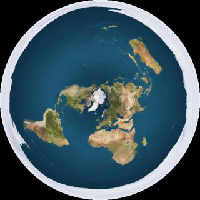{{ชื่อ}} ประเภทบุคลิกภาพ MBTI
บุคลิกภาพ
"Want to Change the World ประเภทบุคลิกภาพประเภทใด Want to Change the World เป็นประเภทบุคลิกภาพ INFJ ใน mbti, 1w2 - so/sx - 125 ใน Enneagram, RLOAI ใน Big 5, EIE ใน Socionics"
Between INFJ and ENFJ, I would like to share the following quotes from Psychological Types on the distinction between cognitive introversion and extraversion: "Whereas the extravert continually appeals to what comes to him from the object, the introvert relies principally on what the sense impression constellates in the subject." It is worth noting that while all people are capable of orienting themselves towards objective data or extracting subjectivity in their inner world, affecting one's will onto objects is the introvert's absolute factor, while being affected and aligning oneself with objective stimuli would be the extraverted counterpart. For the introvert, objects are used as a means to its subjective end. "The introverted consciousness is naturally aware of external conditions, [but] it selects the subjective determinants as the decisive ones. It…responds to the sense stimulus in accordance with the individual's subjective disposition." For the extravert, the subjective realm is used as a means to its objective end. "His inner life is subordinated to external necessity." There comes a time in the Ni dom's life where they not only perceive the images which constellate in their inner world as mere spectacles, but consider their significance. Jung: "The moral problem comes into being when the intuitive tries to relate himself to his vision, when he is no longer satisfied with mere perception and its aesthetic shaping and estimation, but confronts the question: What does this mean for me and for the world? What emerges from this vision in the way of a duty or task, either for me or for the world?" (cont.) "He concerns himself with the meaning of his vision; he troubles less about its further aesthetic possibilities than about the possible moral effects which emerge from its intrinsic significance. His judgment allows him to discern, though often only darkly, that he, as a man and as a totality, is in some way inter-related with his vision, that it is something which cannot just be perceived but which also would fain become the life of the subject. Through this realization he feels bound to transform his vision into his own life." While the desire to change the world may apply to either the INTJ or INFJ, the universalist nature of Fe-Ti strongly suggests the latter. IDRLabs: "The Fe type views others as extensions of himself (and vice versa) in a more personalized manner." Fe cognizes individuals as cut from the same cloth and on an inseparable plane of common interests. Their vision, then, becomes one of the world's. They are ethically inclined to distribute their knowledge of truth to the masses. Think of Plato's (INFJ) Allegory of the Cave, in which the philosopher, after having gained insight of the "good," returns to the depths in order to impart to others of their blindness. Noam Chomsky (INFJ): "It is the responsibility of intellectuals to speak the truth and expose lies." As for the enneatype, 1 is a self-evident choice: "Ones constantly compare a present reality to its ideal state. They know what is missing and what should be there." "Often, Ones have a clear life mission outlined in their mind, and they work very hard behind the scenes to transform that powerful vision into reality - with a strong sense of duty and tenaciousness." "Ones are attracted to and value goodness. They desire to be good persons, seeking to make the world a better place to live in. They want to realize all of their potentials and help others actualize theirs."








